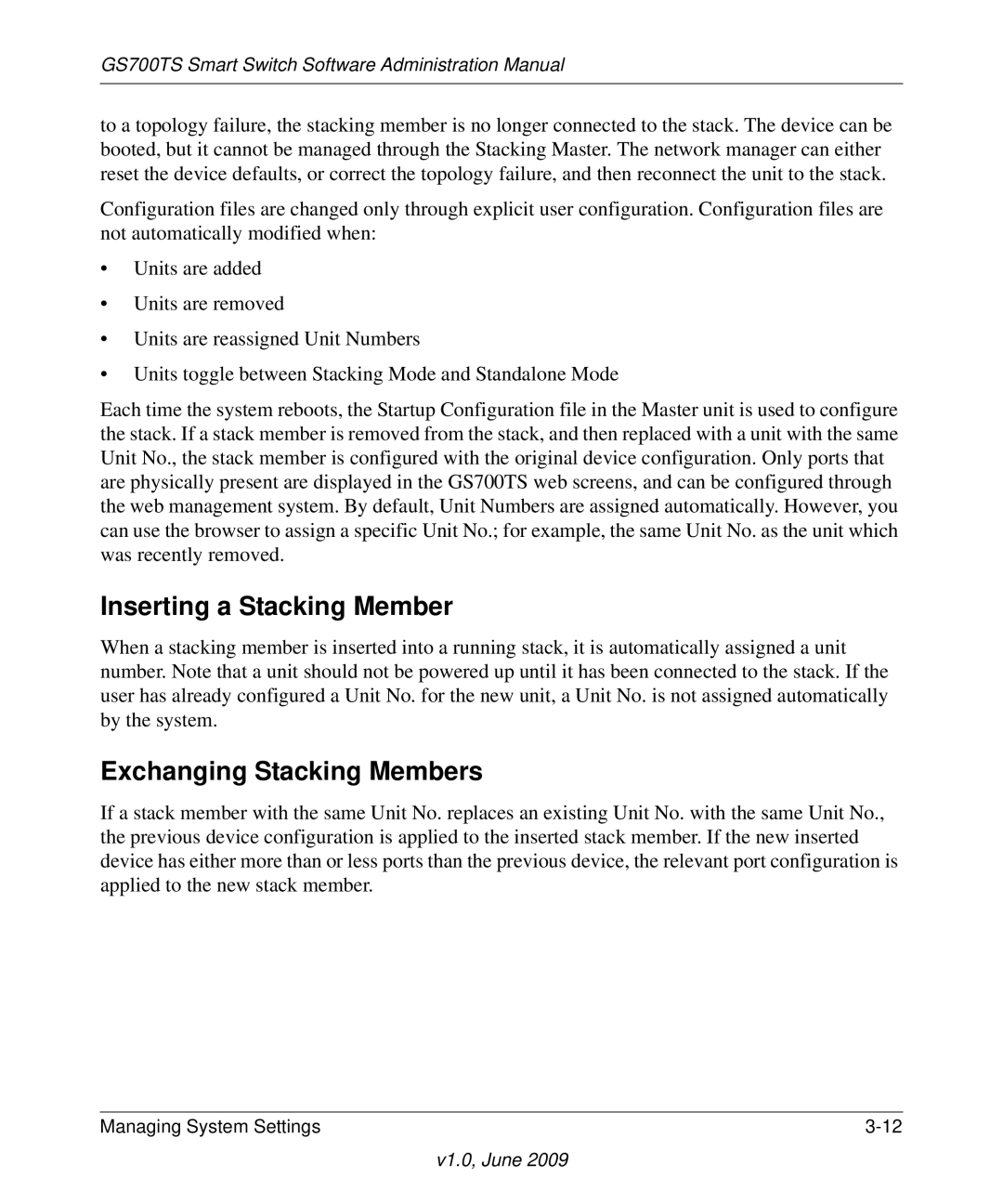GS700TS Smart Switch Software Administration Manual
to a topology failure, the stacking member is no longer connected to the stack. The device can be booted, but it cannot be managed through the Stacking Master. The network manager can either reset the device defaults, or correct the topology failure, and then reconnect the unit to the stack.
Configuration files are changed only through explicit user configuration. Configuration files are not automatically modified when:
•Units are added
•Units are removed
•Units are reassigned Unit Numbers
•Units toggle between Stacking Mode and Standalone Mode
Each time the system reboots, the Startup Configuration file in the Master unit is used to configure the stack. If a stack member is removed from the stack, and then replaced with a unit with the same Unit No., the stack member is configured with the original device configuration. Only ports that are physically present are displayed in the GS700TS web screens, and can be configured through the web management system. By default, Unit Numbers are assigned automatically. However, you can use the browser to assign a specific Unit No.; for example, the same Unit No. as the unit which was recently removed.
Inserting a Stacking Member
When a stacking member is inserted into a running stack, it is automatically assigned a unit number. Note that a unit should not be powered up until it has been connected to the stack. If the user has already configured a Unit No. for the new unit, a Unit No. is not assigned automatically by the system.
Exchanging Stacking Members
If a stack member with the same Unit No. replaces an existing Unit No. with the same Unit No., the previous device configuration is applied to the inserted stack member. If the new inserted device has either more than or less ports than the previous device, the relevant port configuration is applied to the new stack member.
Managing System Settings |
